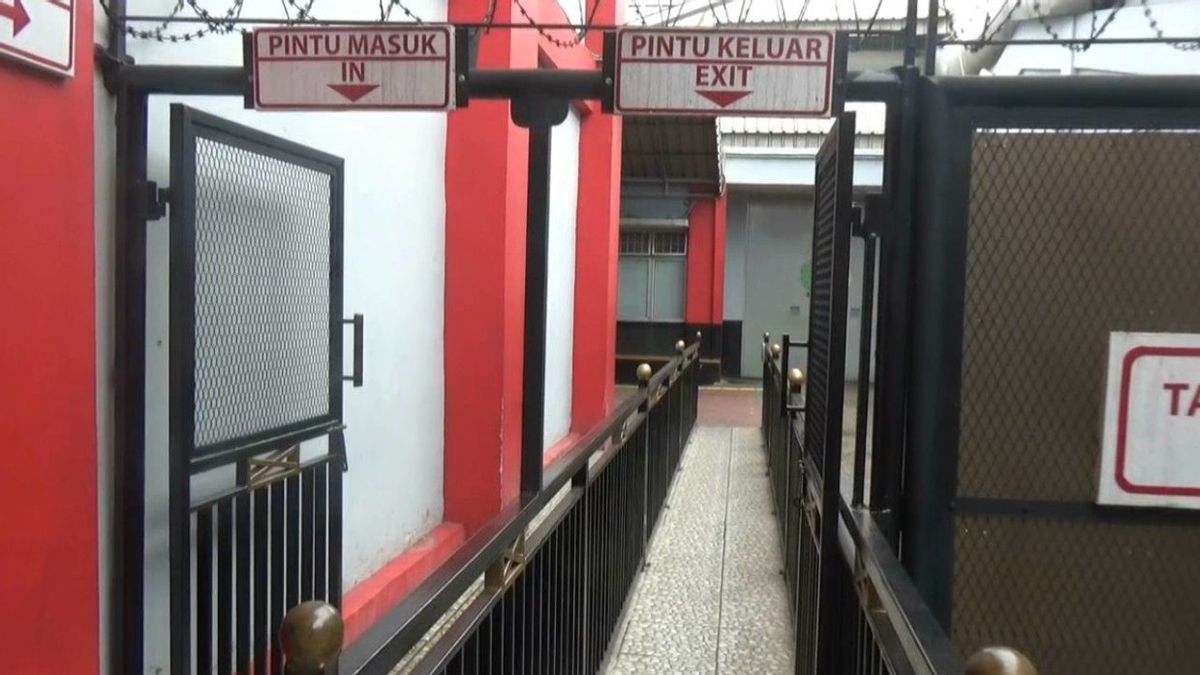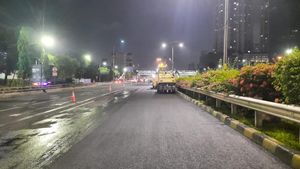JAKARTA - Thousands of prisoners throughout Indonesia have been released through assimilation and integration programs related to preventing the transmission of the corona virus or COVID-19. However, many of them are acting up again and have to deal with the police again.
The prisoners who were released did not take advantage of the Ministry of Law and Human Rights policy to stay at home in accordance with the government's original objectives. Thus, many parties consider this policy ineffective and only cause new problems
One example, AR and JN. They are both assisted residents who have spent several years in community institutions (prisons) for weighted theft cases.
The two of them were arrested again for holding up a passenger of the M15 city transportation (Angkot), heading for Tanjung Priok towards the City, on Sunday, April 12. When in action they were desperate to injure their victims with sharp weapons.
Upon that incident, they went back to dealing with the police. JN who was arrested earlier had to be shot in the leg as he tried to escape. Meanwhile, AR died with a gunshot wound because he attacked the police with a sharp weapon.
With this and other cases, the prisoners are not afraid to repeat their actions. Thus, the presumption or the question arises, the most appropriate punishment is given to them and becomes the trigger for other inmates.
According to a criminal law observer from Al-Azhar University, Suparji Ahmad, for now the provision of maximum punishment is the best step to become a trigger for other inmates. The goal is none other than so that judges no longer need to consider the waiver factor for assimilated prisoners who return to acting up.
"The judge in his decision does not need to consider mitigating reasons. The prisoner must be severely punished for abusing assimilation," Suparji told VOI, Monday, April 20.
The second reason for giving maximum punishment, said Suparji, was because action could disrupt the government's focus in dealing with the increasingly massive spread of COVID-19 every day. Moreover, during the pandemic, their existence caused unrest in the community.
"It really disturbs the state and society because of the emergency situation or the COVID-19 pandemic," said Suparji.
Criminologist at the University of Indonesia, Ferdinand Andi Lolo, added that giving maximum punishment is indeed an artistic step. This is because there is no legal umbrella for steps to anticipate the actions of prisoners in the midst of the COVID-19 pandemic.
For this reason, it is recommended that the government make a Government Regulation in Lieu of a Law (Perpu) as a legal guideline for the police to carry out prosecution.
"So that there will be immediate legal guidelines for the apparatus. They do not seek and match the Articles that regulate general or normal situations," said Ferdinand.
Then, the lack of supervision of prisoners is another reason. This is constrained by the implementation in the field because of the work from home policy. Moreover, the lack of human resources (HR) to supervise the prisoners who were released, numbering in the thousands.
"So that there is no synchronization between Kemenkumham policies and supervision in the field by prosecutors and control by the Correctional Center (bapas)," said Ferdinand.
The English, Chinese, Japanese, Arabic, and French versions are automatically generated by the AI. So there may still be inaccuracies in translating, please always see Indonesian as our main language. (system supported by DigitalSiber.id)












